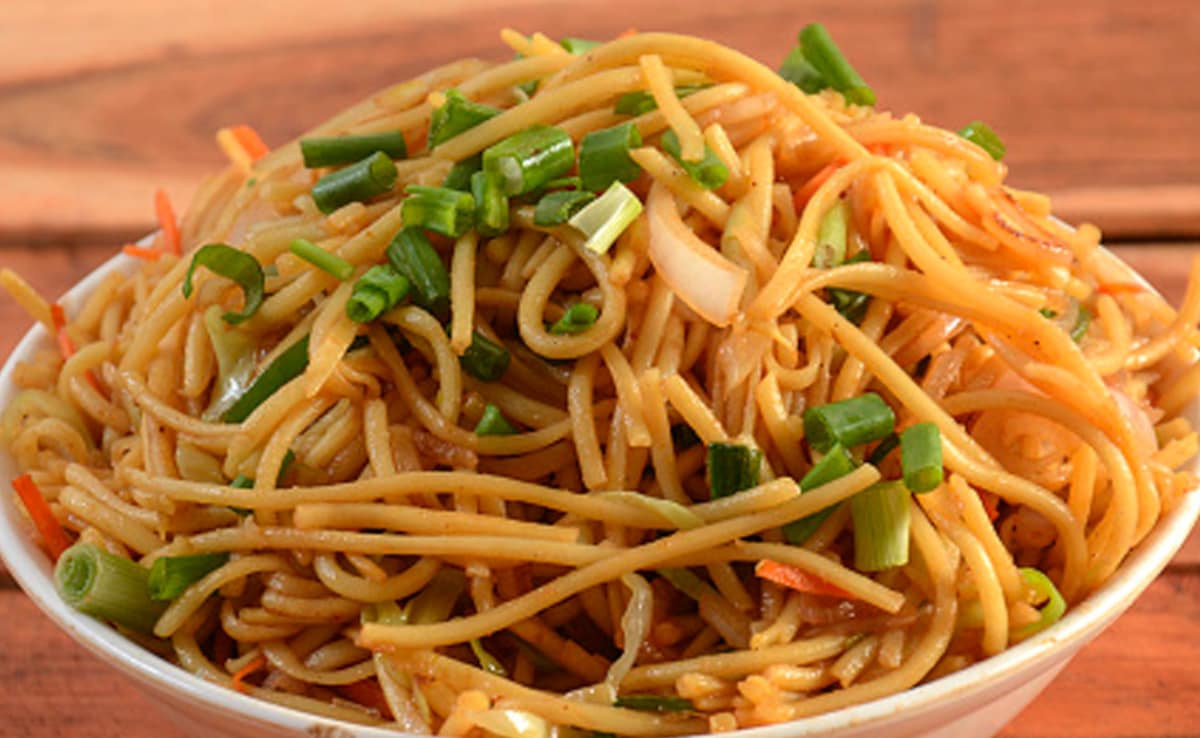Looking for a healthier alternative to traditional noodles? Jowar, or sorghum flour, noodles are not only nutritious but also delicious. No atta, no maida, no rice, these noodles offer a wholesome option for those avoiding wheat-based products. Jowar flour can be used in various culinary applications, from making noodles, bread, and pancakes to being used as a thickening agent in soups and sauces. Its versatility makes it a valuable addition to any gluten-free kitchen. Making noodles is the most delicious way to consume this healthy millet.
Are Jowar Noodles Healthy?
Jowar is a gluten-free, easy-to-digest and more nutritious option as compared to maida and atta, which are commonly used to make noodles. Incorporating jowar noodles into your diet not only diversifies your meal options but also provides numerous health benefits. Whether you’re looking to manage a gluten-free diet, boost nutritional intake, or simply enjoy delicious and wholesome meals, jowar noodles offer a satisfying solution.
Also Read: Thai Sesame Noodles Recipe
Health Benefits Of Jowar:
1. Gluten-Free:
Jowar is naturally gluten-free, making it a safe choice for individuals with gluten intolerance or celiac disease. It allows people to enjoy noodles without the worry of digestive discomfort or allergic reactions associated with wheat.
2. Rich in Nutrients:
This ancient grain is a powerhouse of essential nutrients such as iron, magnesium, phosphorus, and potassium. It also provides vitamins B1 (thiamine), B2 (riboflavin), B3 (niacin), and B6, contributing to overall health and well-being.
3. High in Fibre:
Jowar contains a significant amount of dietary fibre, which promotes digestive health by supporting regular bowel movements and aiding in the prevention of constipation. Fibre also helps to keep you feeling full and satisfied after meals.
4. Low Glycemic Index:
Foods with a low glycemic index (GI) are beneficial for managing blood sugar levels. Jowar has a lower GI compared to many other grains, meaning it causes a slower and more gradual rise in blood glucose after consumption.
5. Promotes Heart Health:
The presence of antioxidants and phytochemicals in jowar helps to reduce inflammation and oxidative stress in the body, which are risk factors for heart disease. Its fibre content also contributes to lowering cholesterol levels.
.
With so many health benefits of jowar on the plate, why not make your noodles a more enriching meal? And you can easily make it at home. This recipe shared on the Instagram page ‘seemassmartkitchen’ shows how to make it easily with the help of a noodle-making tool.
Also Read: Spaghetti With Zucchini Recipe
How To Make Jowar Noodles I Millet Noodles Recipe:
Begin by preparing the dough for your jowar noodles. In a bowl, combine 1 cup of jowar flour with half a teaspoon of salt. Gradually add half a cup of warm water and knead the mixture into a smooth dough. Cover the dough and let it rest for 5 minutes.
Next, prepare your steaming setup. Line a steamer or puttu maker with oil and grease a perforated plate lightly with oil as well. After resting, knead the dough again to ensure it’s smooth and pliable. Put in the noodle maker and push the noodle strands directly onto the greased plate of the steamer.
Steam the noodles on low to medium heat for 10 to 15 minutes until they are cooked through. Once done, gently separate the strands using a fork or tongs.
Now, it’s time to prepare your jowar noodles just like you would with any other noodles. Heat a pan, add a splash of oil, garlic and stir-fry julienned vegetables such as carrots, cabbage, and onions until they are tender yet crisp. Add your favourite sauces, a dash of vinegar, and salt to taste. Toss in the steamed jowar noodles and mix everything well.
Serve your homemade jowar noodles hot, garnished with fresh herbs if desired. Enjoy the delightful taste and health benefits of these gluten-free noodles that make a perfect addition to your diet. If you want to explore other noodle recipes, click here.














